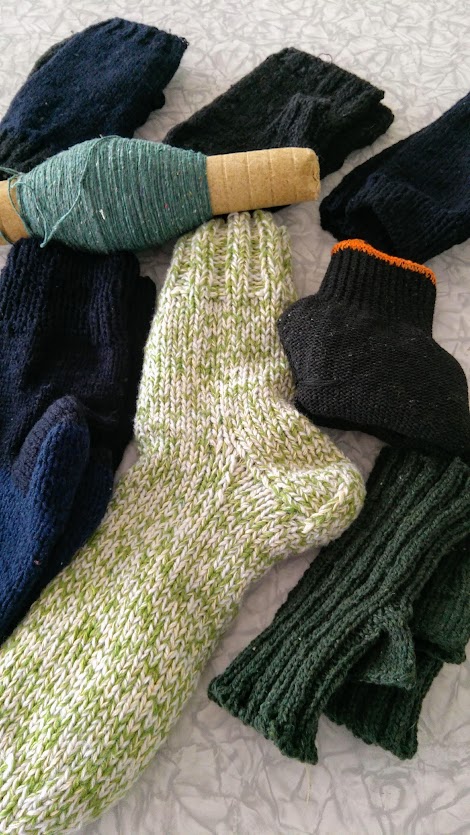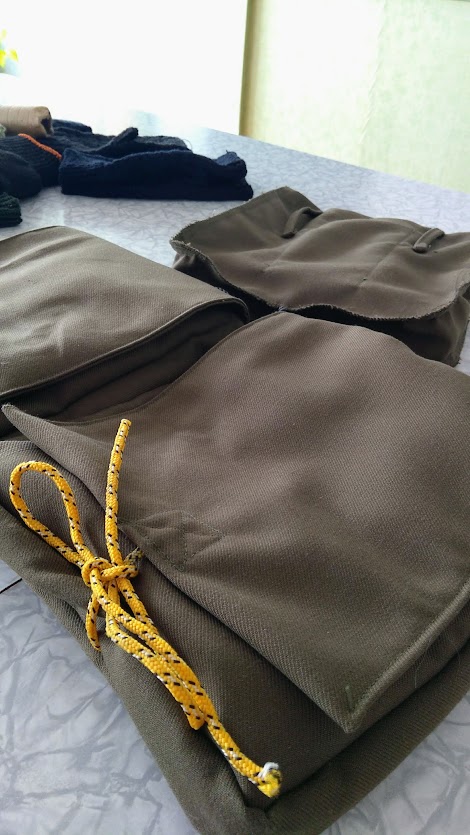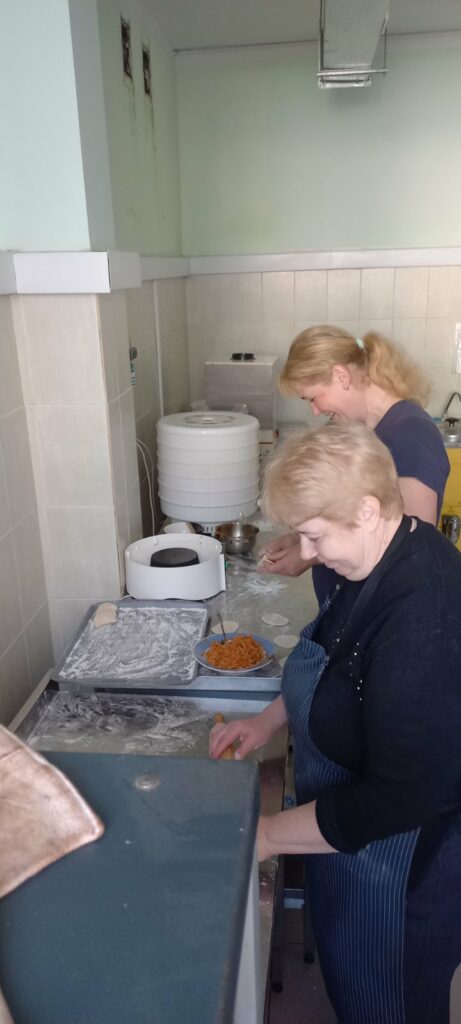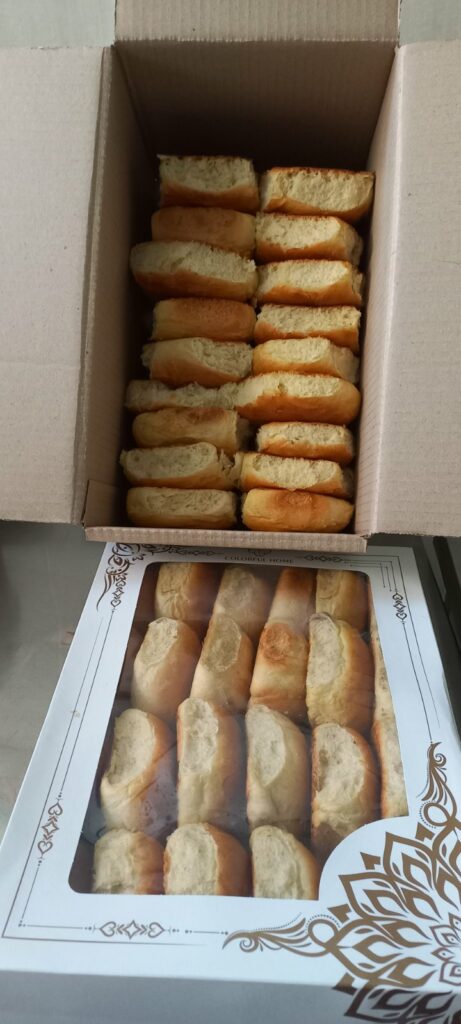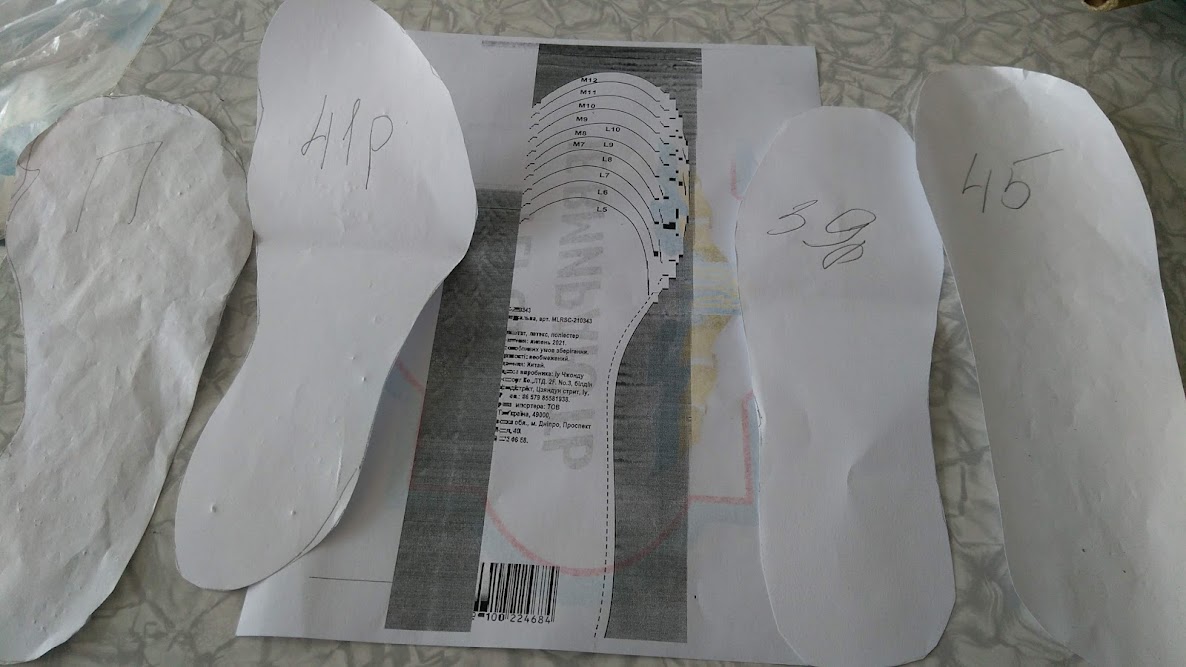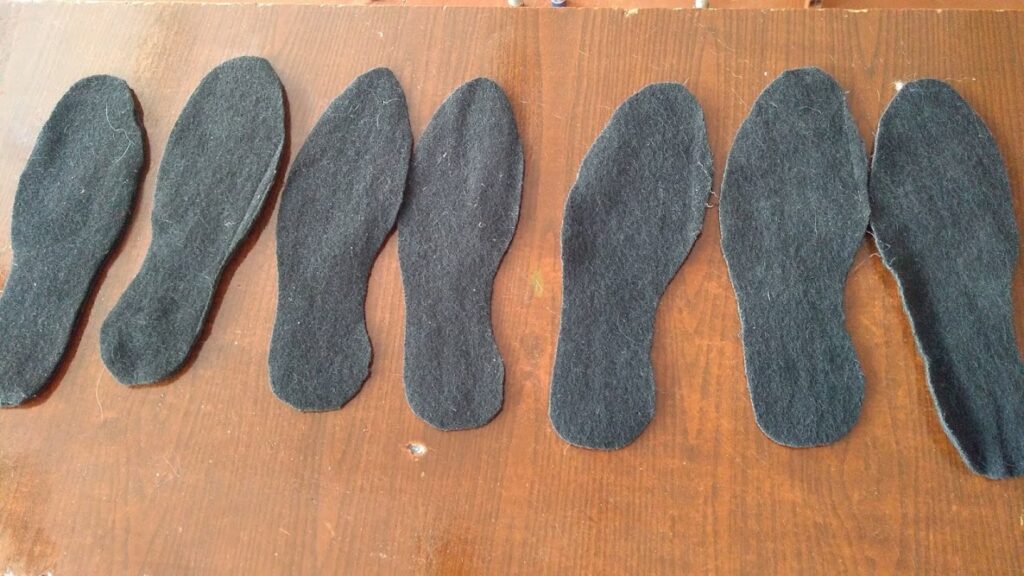Sloviansk, but not that one. That’s what you can say about Nikopol, an industrial center of the Dnipropetrovsk region, located on the banks of the Dnieper. Prince Grigory Potemkin wanted to build a fortress in this place and call it Sloviansk. But it was not destined to happen.
It’s the same now. Having invaded Ukraine, the insane descendants of the cunning prince dreamed of taking control of this land, too. But they did not take into account the entire history of the city. According to the annals, Bohdan Khmelnytsky arrived here in 1647, fleeing from the persecution of the crown government. Under his leadership, the Cossacks defeated the crown troops’ garrison stationed in Sich. Here, in early February 1648, Khmelnytsky was elected hetman of Ukraine.
Now Cossack descendants are defending this area from Russian invaders, who have concentrated on the opposite bank of the big river. They defend and know that the truth, strong weapons and a reliable home front are with them.
United by the desire to be useful
Since the first days of the war, active people of Nikopol got together to help the front with handmade goods. Hundreds of people united under the symbolic name “Warm hands”, because they literally and figuratively warm our soldiers with knitted socks and mittens, hats and balaclavas, woolen shoe insoles and even hot homemade borscht. During the months of the war, people’s desire to be useful has not faded away. They carefully examined the demand, honed their skills, organized efficient work and learned to trust each other…
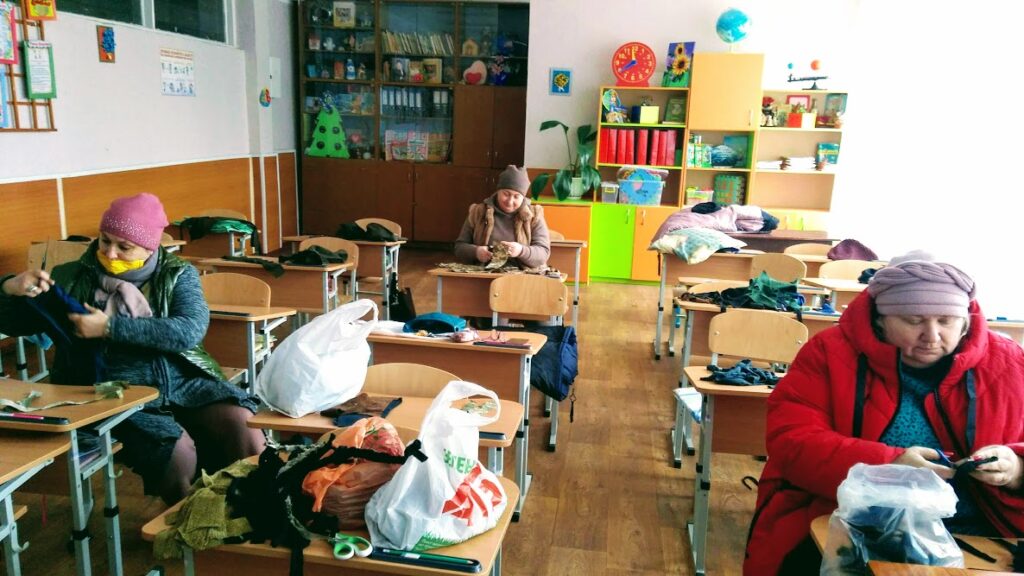
Anna Klym, a resident of Nikopol, initiated the setting up of a virtual creative workshop. She works as an accountant and admits that since the outbreak of the war, she has had to do a lot of things at her main place of work at night, because helping the military has become an important and essential part of her life:
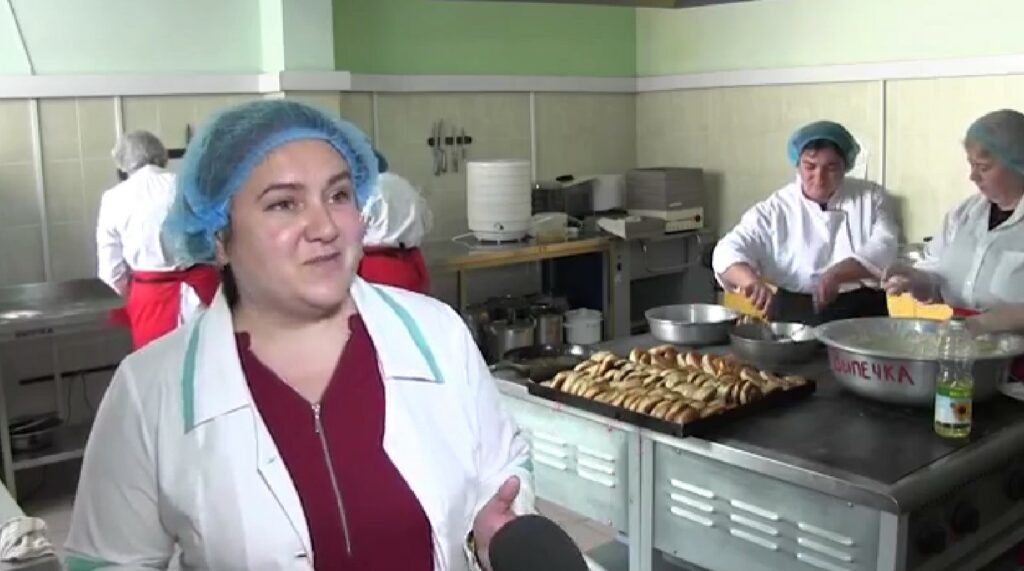
“Before February 24, I was never involved in volunteering. I did not make any balanced decision in this regard. I just saw and understood that something had to be done. We created the “Warm Hands” chat room, and people who were able to help with their skills began joining it. What is special about our community is that we do not collect money but provide an opportunity to help with your work. There are a lot of people who cannot transfer money, but have a great desire to be useful.”
Today, when Nikopol has been under daily shelling for the fourth month, it is a little harder to carry out some work – many people have left the city, buildings have been damaged, but still things are moving forward.
Features of volunteers’ life
Clearing up the needs of the military, organizing places to work, places to collect materials, choosing the right patterns, distributing threads or cloth – these are the basic things to keep things running. The apartment where Anna’s family lives has turned into a production and creative workshop:
“Mom cuts underwear for soldiers, sews bags, I help, knit socks. My 9-year-old daughter is also involved: she rewinds the yarn that we take from woolen clothes. It is hard to live in such a mode, both physically and morally. Sometimes we even allow ourselves to rest, but only in order to get to work with renewed vigor.”
Not everyone who has joined the chat room is active, but most can be fully counted on: three girls sew bags, about a dozen sew men’s underwear, most women knit. One girl, who went abroad, had made more than three hundred pairs of socks on her knitting machine. There are also men in the chat room.
Goodies for servicemen
At first, they discussed the idea of drying borsch for a long time, because the dish is multi-component and quite complex in terms of cooking technology. But the girls decided to start and bought everything necessary with their own money. They organized tasting of their version of quick borsch at the military administration. They passed the inspection of the sanitary service and their borsch was approved for mass production. The administration provided the premises and products for cooking. At first our skilled cooks used only drying machines, and then they adapted to making precooked borsch in large ovens. The military have appreciated their borsch because it is very easy to cook: pour 2 liters of boiling water into 100 grams of mixture and a delicious dish is ready. It doesn’t differ from freshly cooked, because it contains all the traditional set of vegetables and meat. Such work is performed by professional chefs of communal enterprises.
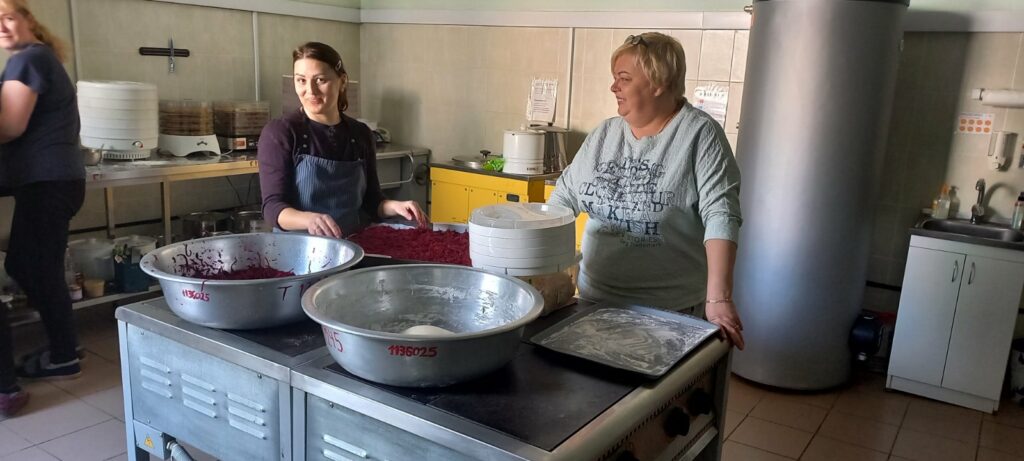
Our soldiers also like potato patties and pancakes from frozen semi-finished products cooked by Nikopol women, as well as tinned meat.
“Warm Hands” also provides snacks, usually delicious home-made pastries, to the Construction Battalion volunteers who help communal workers eliminate the consequences of missile attacks in Nikopol.
Jacks of all trades
“Warm Hands” is involved in many areas of work. It is known that there has been a need for military camouflage nets. Many centers for weaving such nets were set up in Nikopol. Benefactors provided nets, and “Warm Hands” helped to organize weavers via its chat, and collect the necessary materials for weaving.
Volunteers are ready to meet the needs that will arise with the onset of cold weather, because they kept knitting warm things in summer and managed to lay them up in store. Thousands of insoles were made before winter.
The remains of cardboard are used to make a trench candle. The cardboard strips are folded into a metal can and filled with wax. A 20-year-old woman from Nikopol, who joined the volunteers in spring, taught them how to do it. Later, she went to Germany to earn money to pay for her studies, but her work lives on, because the product is in demand, so those who remained keep doing it.
There is also “Berehyni Nikopolya” charity foundation that raises funds for projects that need material support. In early summer, the foundation managed to collect money for the purchase of high-quality knitwear, from which T-shirts for the military were made. The uniforms could also be ordered by soldiers’ families and passed to the front line.
“There is a teacher in our community; I nicknamed her Blyskavka (Lightning). She is a bicyclist. She offered her help in delivering materials to craftsmen. At first, it didn’t seem like a good idea, because a lot of people from different parts of the city and the entire Nikopol district were involved. But we decided to try. The girls wrote about their needs in the chat in advance: where from and where to. Our Blyskavka delivered a tourist backpack and huge trunks with materials for needlework, ready-made products and blanks several times a week in any weather. She travelled up to 30 km around Nikopol. Currently, the work has been organized in such a way that there is no urgent need for such trips, because several people help us to deliver things by their cars. However, we know that we can always rely on Blyskavka,” says Anna Klym.
Light fabric is not for the front; it is used to sew pillowcases for hospitals. Blue and yellow materials are used to make Ukrainian flags. Old but still strong bedspreads and blankets make good stretchers for the front.
Nikopol residents helped “Warm Hands” with sewing machines. Here everyone knows what he is doing and why.
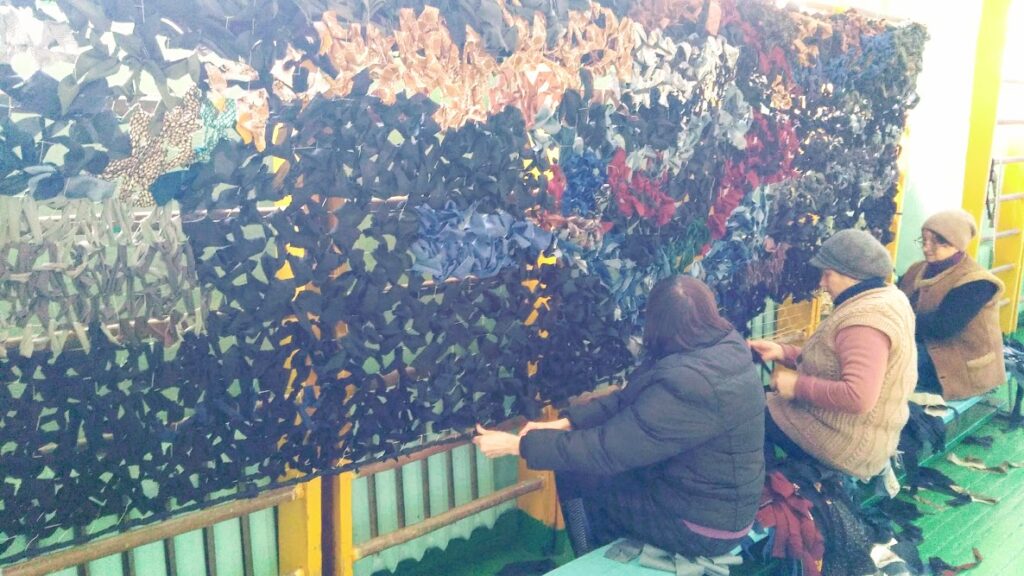
Oksana Lymar, Nikopol


